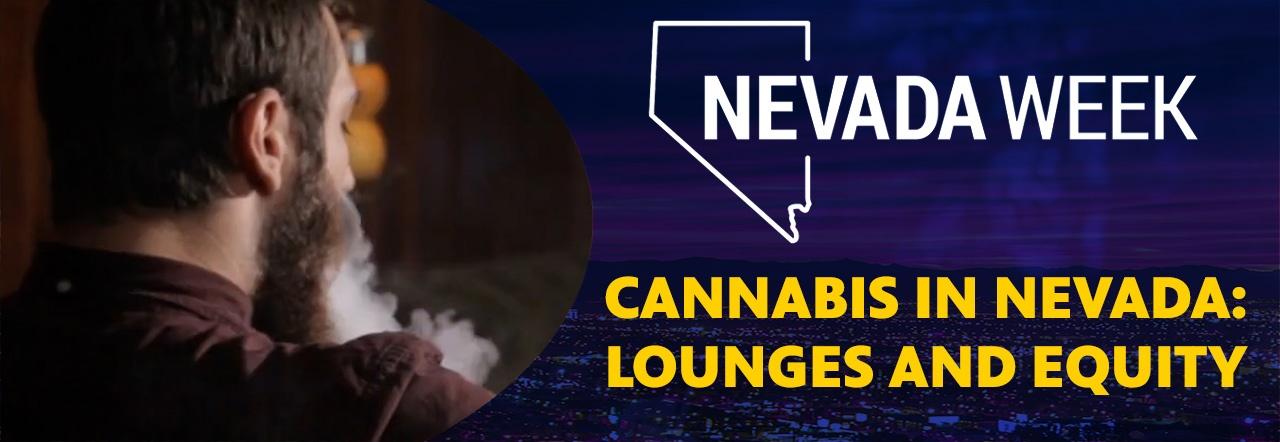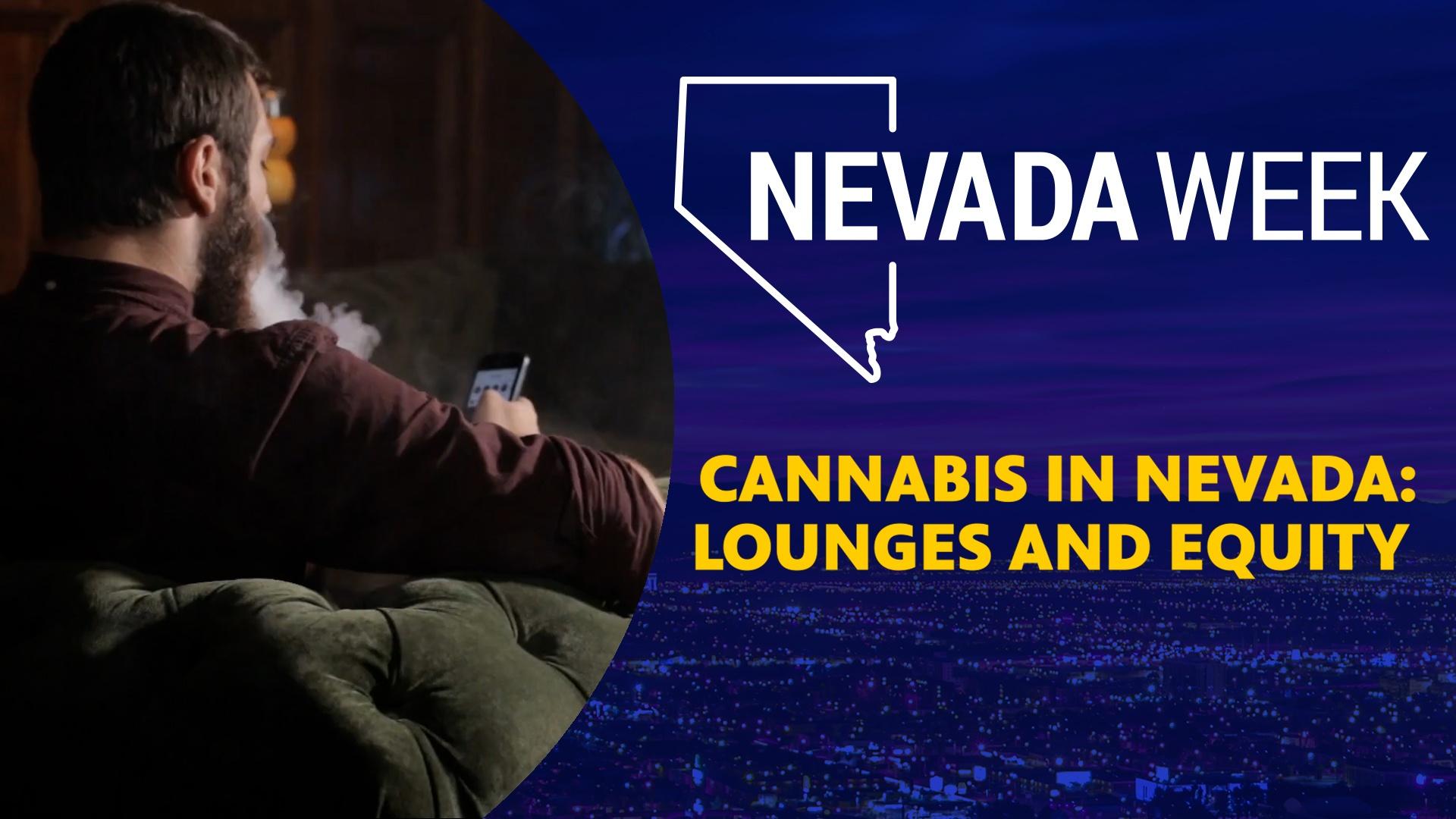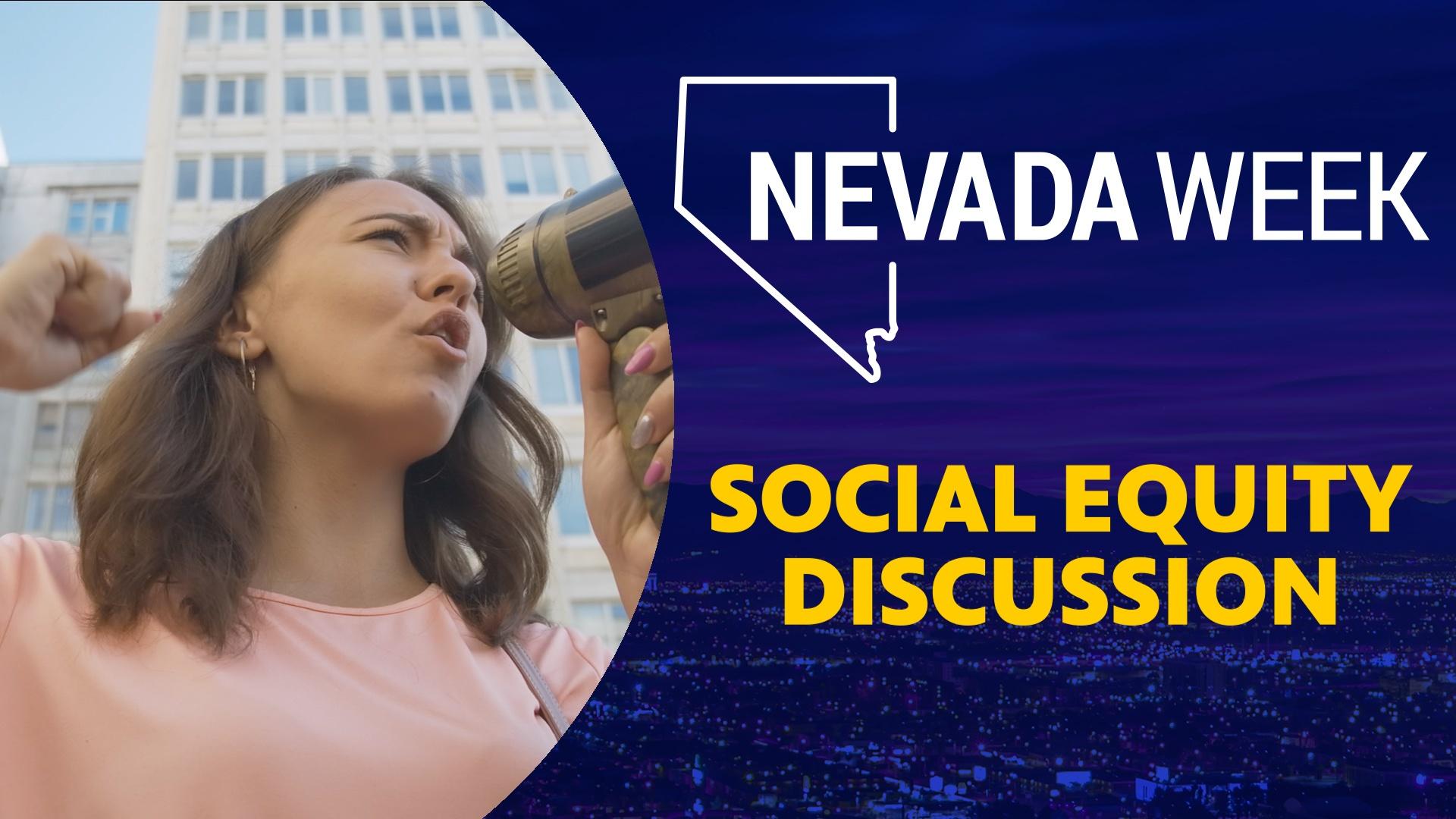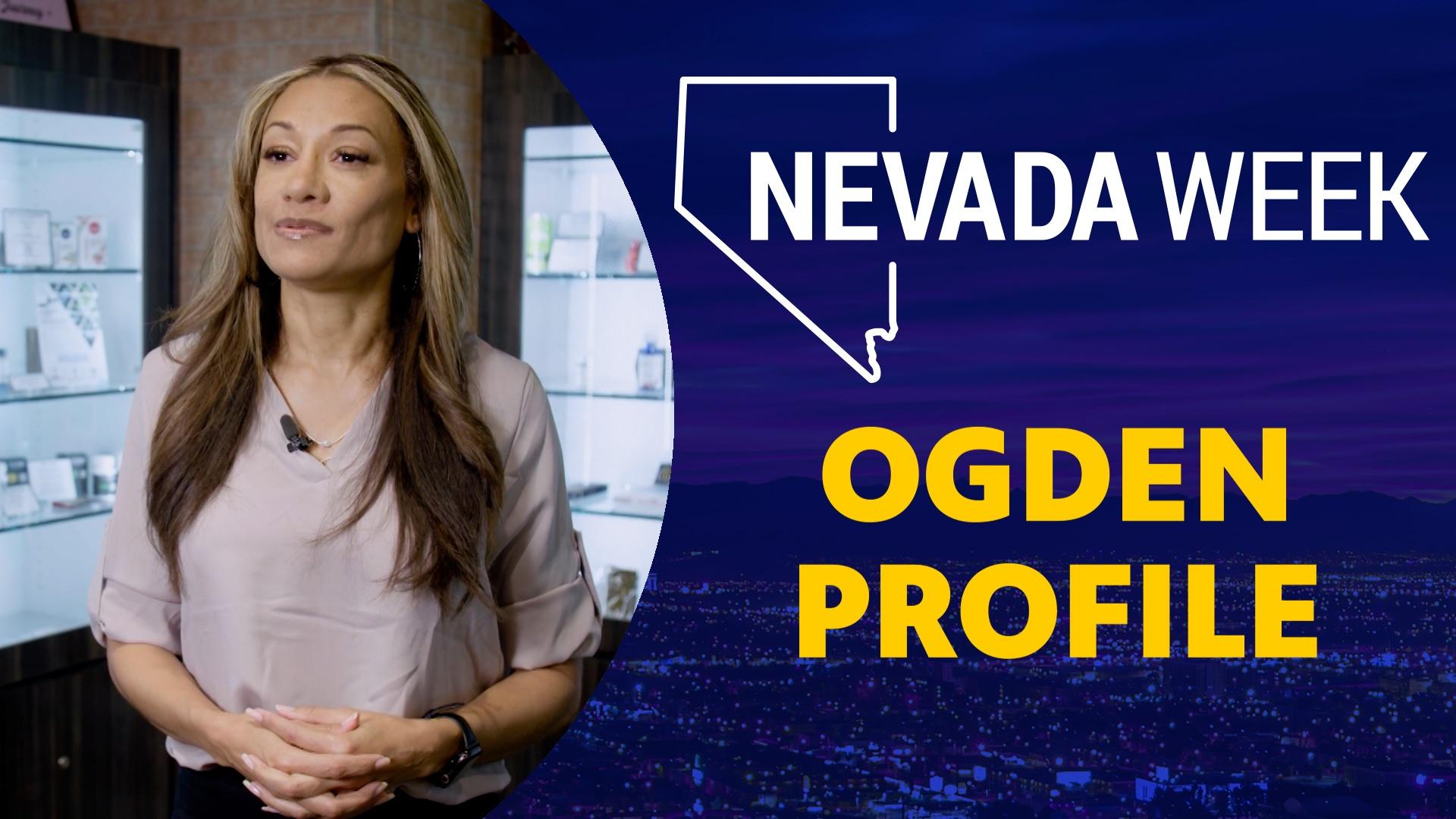Cannabis in Nevada: Lounges and Equity | Nevada Week


A look at cannabis consumption lounges and efforts to make the industry more equitable.



SEASON 5: EPISODE 2 | Airdate: 7/22/2022
Legal sales of recreational marijuana started in Nevada in July 2017. Yet, right now, there is only one place where you can legally use it in public in Las Vegas and that’s the Nuwu Cannabis Marketplace. The marketplace is on tribal land and is owned and operated by the Las Vegas Paiute Tribe.
However, the Nevada Cannabis Compliance Board has created a path for more cannabis consumption lounges to open. Similar to bars that serve alcohol, cannabis consumption lounges will serve marijuana.
The board estimates it will issue around 40 to 45 licenses for lounges that are associated with dispensaries and 20 licenses for lounges that are independent of dispensaries. Of those licensees, 10 must be social equity applicants.
The board defines a social equity applicant as someone who lives in a disadvantaged area, based on socioeconomic levels and incarceration rates, and someone who has been convicted of a non-violent cannabis offense or who has an immediate family member who has been convicted of a non-violent cannabis offense.
According to a 2022 Nevada Cannabis Compliance Board demographic study, the majority, 69 percent of the cannabis industry executives identify as male. Fifty-seven percent are white, nine percent identify as Hispanic or Latino and six percent as Black.
The compliance board defines industry executives as board members, officers or owners like Kema Ogden. She co-owns Top Notch The Health Center in Las Vegas and is the only African-American woman to own a dispensary in the state.
She said to defy the trend she had to be aggressive.
“You have to push the door open,” Ogden said, “You have to demand to have a seat at the table. You have to know what you're getting into, do a lot of research, and be well prepared for this.”
She said executives don’t always look at someone like her and think she knows as much as they do. She said the lack of minorities at the executive level in the cannabis industry is reflective of corporate America as a whole.
“Unfortunately, we don't have the money, we don't have the resources, and lenders don't loan minorities or women money like they do white males,” she said, “Access to capital, access to resources, people believing in you, stereotypes, all these things play a role and the challenges that we have to overcome.”
A’Esha Goins is the chair of the Social Equity, Diversity and Inclusion subcommittee of the Cannabis Advisory Commission. The commission provides input and information to the compliance board on a variety of issues. The board creates and implements policies for the industry.
She said another reason why there is a lack of diversity at the executive levels of the industry is that it is still very new. She said the skills needed to be a successful leader in the industry have not necessarily been established, which makes it harder to find the right people for the job.
Judah Zakalik is a co-owner of Zion Gardens, which is a local cannabis-growing operation. He said the people tend to hire people that look like them or have some kind of commonality with them. So, if there are only white men in ownership, they tend to look for people who look like them or have something in common with them.
There is no question that overall executive positions in corporate America are mostly held by white men, but Tyler Klimas, executive director of the Nevada Cannabis Compliance Board, said that the cannabis industry is a perfect way to change that.
The industry is new, he said, and new license opportunities give the state a chance to really address the issue. He said when the industry was first established in the state in 2017 a lot of upfront money was needed to set up and run the business and there was a mechanism to address some of the social equity problems in the industry.
Now, with new lounges and new licenses for those lounges, the state can finally start to address the inequities.
“Consumption lounges really provide a pathway here that we can get in there ensure that we start to bring in more diverse individuals and try to get a more inclusive industry,” he said.
Goins noted that inequities in cannabis are not the same as inequities in other industries. The biggest reason is the war on drugs. The nationwide campaign that aimed at reducing drug use ended up disproportionately impacting brown and Black communities.
She noted that, according to the ACLU, Black, Mexican and indigenous people are still three times more likely to be stopped for possession of cannabis than white people. She said people need to remember that it was just eight years ago that marijuana was illegal and people of color, in particular, were being locked up for having it. But now, it is okay for people to make money from selling it.
“We should not be making millions of dollars and completely wipe away a generation of people, generations of people because it’s been 30-something years,” she said.
Zakalik said the general public doesn’t completely understand the gentrification of marijuana. He said there is a stigma around people who use it, even among people who own cannabis businesses.
Tina Ulman is the president of the Chamber of Cannabis in Las Vegas. She said affluent white owners in the cannabis industry can look the other way when it comes to questions of diversity and equity because it has really never impacted them.
She said if it wasn’t for organizations in Nevada shining a light on the problem it would be swept under the rug. She said it is important to grow a pipeline of diverse leaders for the industry and finally do right by the people who were impacted by the war on drugs.
One of the biggest obstacles to that change is financing. Overall minority business owners are less likely to get traditional loans and financing for their business but it’s almost impossible for cannabis business owners to get traditional loans at all.
Ulman noted that most cannabis businesses are started by wealthy people or people who have wealthy friends willing to loan money. She said without that kind of money people have to do their own capital campaigns, which are not easy.
She said other states and jurisdictions have taken some of the proceeds from taxes on cannabis and diverted them into programs to help address the lack of capital in the industry. Nevada has moved most of the money from cannabis taxes into education funding.
But it is not just money, both Klimas and Goins pointed out that having a license is not enough. Klimas said that without wrap-around services for new business owners those businesses will have a harder time making it.
Goins said the state needs to create thoughtful policy for getting people those extra services. She is also concerned that lounges will be a tough way to address equity in the industry because lounges are very difficult to set up and maintain, compared with other parts of the industry. She said they provide too many barriers to create real ownership and generational wealth.
